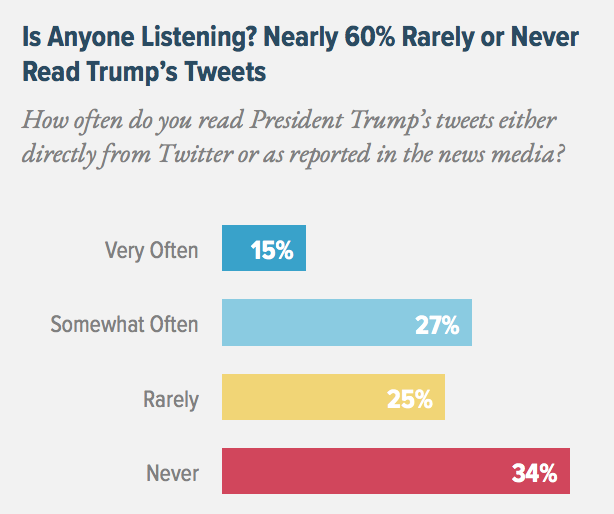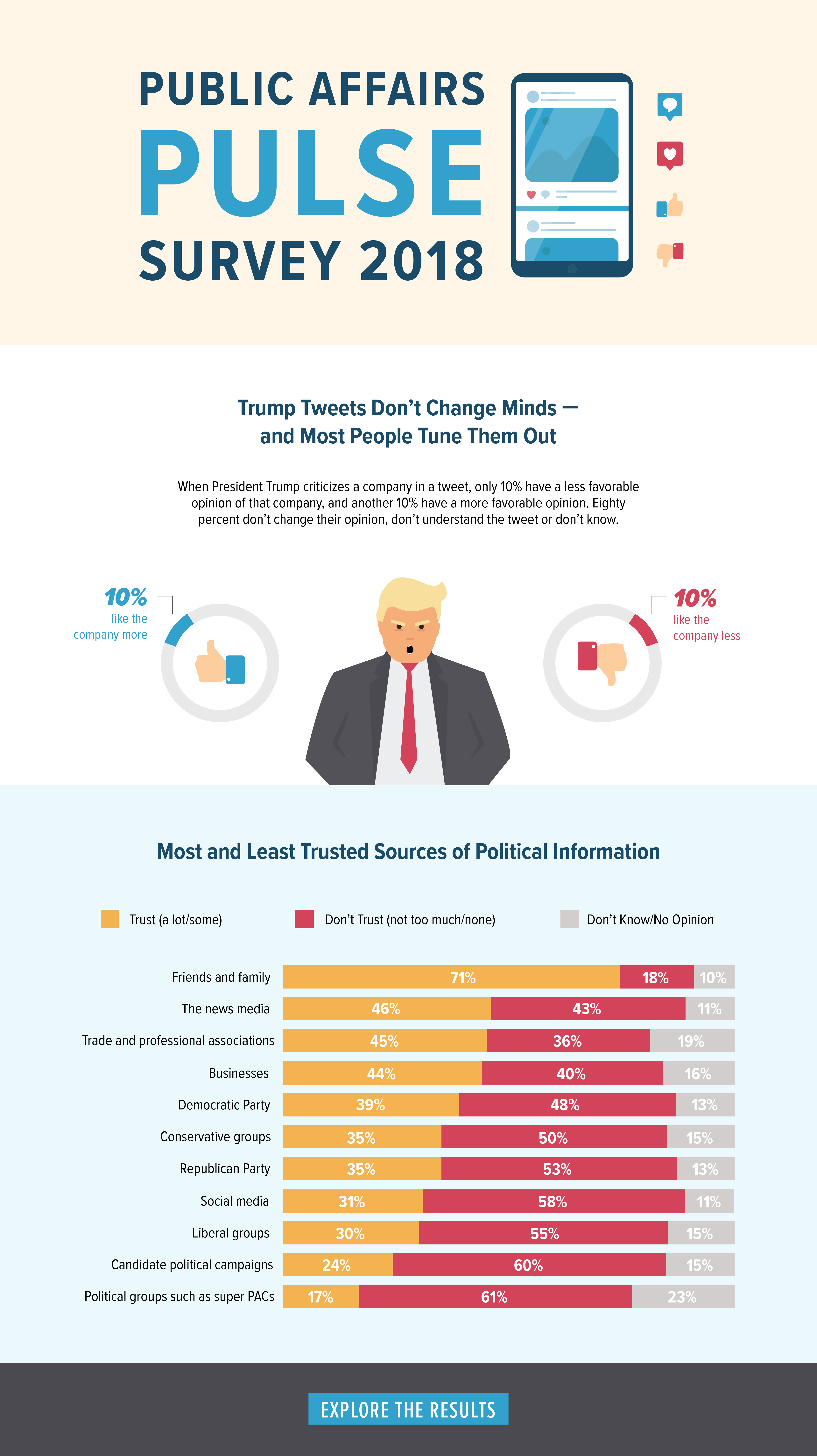President Trump has built a loyal audience for his sometimes flamboyant tweets, but it’s not who most think.

According to a new survey for the Public Affairs Council, more liberals and Democrats follow his Twitter feed than Republicans, likely out of anger.
The sweeping survey of trust in government, business and the media, said that 50 percent of self-described liberals and 46 percent of Democrats read his tweets and then tell friends and family, which also turned out to be the biggest way people get news.
By comparison, 43 percent of Republicans and 36 percent of Independents read the president’s tweets, said the survey conducted by Morning Consult for the Public Affairs Council.

And overall, some 60 percent of all Americans never or rarely read his tweets, which often direct news media coverage of the White House.
The White House operates several accounts and aides write many of those that go out under the president’s name. However, the president himself is a regular tweeter, especially in the morning, and it is his that generate the most attention and indicate his thinking of the day.
And while he and the White House use the social media service to buck up supporters, the survey provided to Secrets found that a Trump attack can also backfire and lead people to support people and companies in the president’s line of fire — by a little. It said 80 percent do not change positions due to a presidential tweet.
The survey, for example, found that while some Trump backers will turn away from a company or person he targets, a near equal amount will express new support.
Who’s influenced? The survey said: “While 10 percent say they have a less favorable opinion of a company once it is attacked by the president in a tweet, an equal percentage say they actually have a more favorable opinion. Groups most likely to be persuaded by the president’s reproaches include Republican men (26 percent) and people who strongly approve of Trump (27 percent). Groups most likely to take the opposite view — and favor a company more after it has been criticized — include Democratic men (21 percent) and Americans who care about women’s policy issues (22 percent).”

